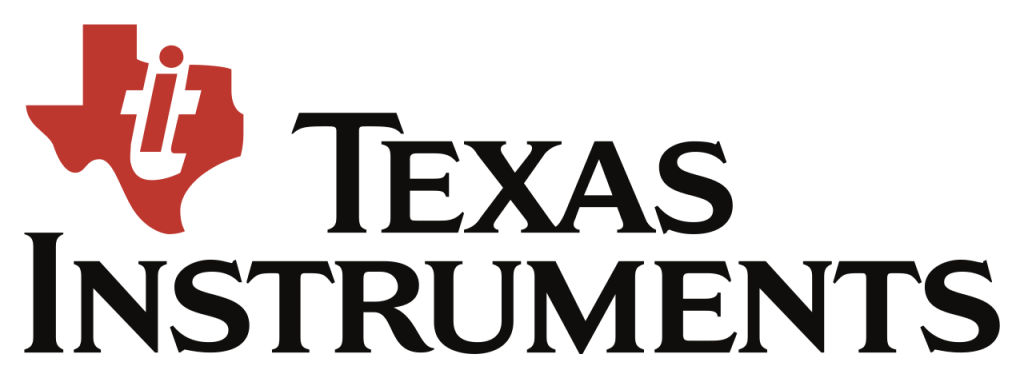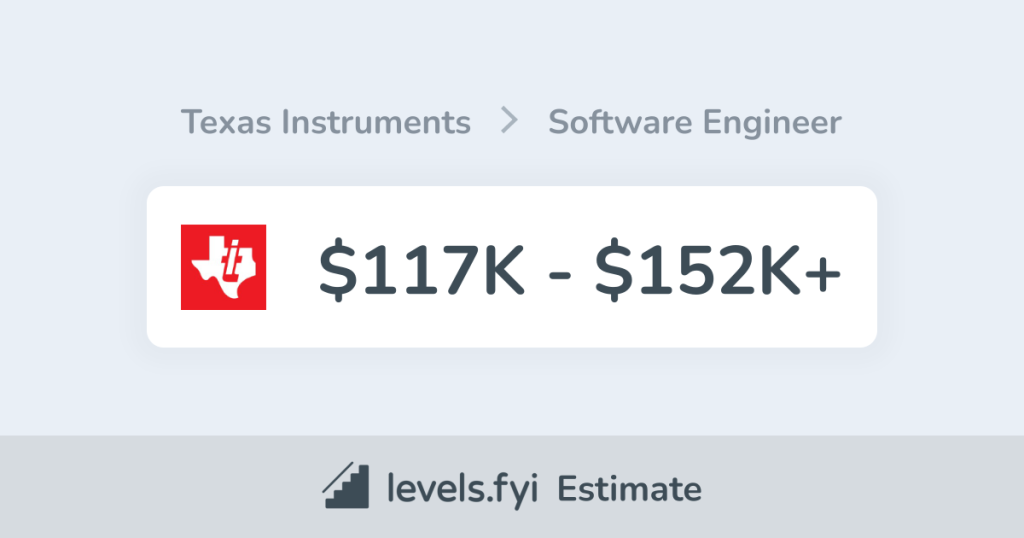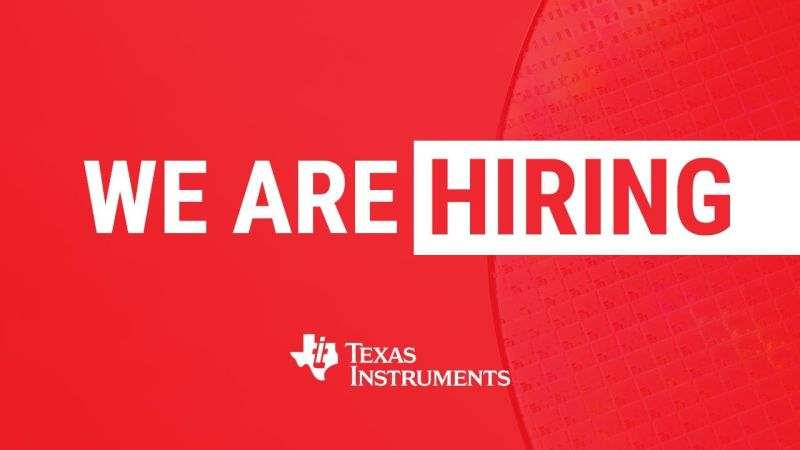
Texas Instruments (TI) is a global leader in the design and manufacturing of semiconductors, essential components in countless electronic devices. Here’s a quick overview:
- Semiconductor Powerhouse: TI offers a vast portfolio of analog, embedded processing, and digital signal processing (DSP) semiconductors.
- Innovation at the Core: They invest heavily in research and development, pushing the boundaries of semiconductor technology.
- Global Reach: TI operates in over 30 countries, providing a dynamic work environment for its employees.
What are the selection and Interview process of Texas Instruments?
The selection process at Texas Instruments can vary depending on the specific role, location, and level of experience. Here’s a general idea of what to expect:
1. Application: You’ll submit your resume and cover letter through their careers website.
2. Online Assessments (Optional): Some positions may involve online assessments to evaluate your technical skills or cultural fit.
3. Interview Stages: If your application is strong, prepare for a series of interviews, which can include:
- Phone Interview: An initial phone conversation with an HR representative or hiring manager to discuss your background, interest in TI, and the specific role.
- Technical Interview(s): For engineering roles, expect in-depth discussions focusing on your technical skills and problem-solving abilities relevant to the specific position. Be prepared for questions related to your knowledge of semiconductor design, analog circuits, digital signal processing, or other relevant engineering fields (depending on the role).
- On-Site Interview(s): These may involve multiple rounds with hiring managers, team members, and potentially senior engineers. Here, you might encounter:
- Behavioral Interview Questions: Demonstrate your relevant skills and experiences through past situations using the STAR method (Situation, Task, Action, Result).
- Case Studies: Analyze a scenario related to semiconductor design, manufacturing, or problem-solving within the industry.
- Fit Questions: Discuss how your values and work style align with TI’s focus on innovation, collaboration, and technical excellence.
4. Offer and Background Check: Successful candidates will receive a job offer contingent on a background check.
Tips for Success:
- Research Texas Instruments thoroughly, understanding their areas of expertise, innovative products, and recent developments.
- Tailor your resume and cover letter to highlight relevant skills and experiences that demonstrate a strong fit for the specific role you’re applying to.
- Brush up on your technical knowledge related to semiconductors (depending on the role).
- Practice your behavioral and case study interview skills using the STAR method.
- Show your passion for innovation, problem-solving, and a collaborative work style to align with TI’s culture.
By understanding Texas Instruments’ selection process and being well-prepared, you can increase your chances of landing a position with this leading semiconductor company and contribute to shaping the future of technology.
How many rounds of interview conducted in Texas Instruments?
Number of Interview Rounds:
The interview process at Texas Instruments (TI) can vary depending on the specific role, department, and location. Here’s a general idea:
- 2-3 Rounds: This is the most common range for many positions at TI, especially for freshers:
- Initial Screening: This could be a phone call or online assessment to gauge your basic qualifications and suitability for the role.
- Technical Interview: Conducted by a recruiter or engineer, focusing on your technical skills and problem-solving abilities relevant to the position.
- On-Site Interview (Optional): In some cases, you might have an additional in-person interview with the hiring manager or team members to assess cultural fit and communication skills.
For Internship Positions:
- The process might involve fewer rounds, potentially just a written test and a single interview.
What is the salary for freshers in Texas Instruments?

Similar to the interview process, the salary for freshers at Texas Instruments depends on various factors like:
- Specific Role: Salaries can differ between engineering positions, computer science roles, or other entry-level functions within TI.
- Location: Cost of living plays a role, with locations in Silicon Valley or other tech hubs generally offering higher salaries compared to more rural areas.
- Academic Background: A Master’s degree in a relevant field (engineering, computer science, etc.) or a strong undergraduate degree with relevant coursework might influence the starting salary.
Here’s how to research potential salary ranges for freshers at Texas Instruments:
- Texas Instruments Careers Website: While specific entry-level salaries might not be advertised, job descriptions sometimes mention the job category or level. Search for average salaries for that category/level within the semiconductor industry.
- Salary Websites: Explore Glassdoor, Indeed, and Salary.com to search for specific job titles and locations. These offer salary ranges based on user reports, although not guaranteed.
- Job Search Engines: Some job postings on platforms like Indeed or LinkedIn might mention salary ranges.
Tips for Freshers:
- Look for entry-level positions or those mentioning “recent graduate” or “early career” in the qualifications.
- Showcase your passion for technology, engineering, or the specific field relevant to the position.
- Highlight relevant coursework, projects, or internship experiences (if any), even if limited.
- Research Texas Instruments’ work in the semiconductor industry and their innovations.
By understanding the interview process and utilizing resources to research salaries, you can prepare effectively for your Texas Instruments application. Remember, demonstrating your potential, enthusiasm, and relevant skills can make a strong impression during the interview.
Top questions Asked for freshers in Texas Instruments
Being a leading semiconductor company, TI often asks freshers a mix of technical and behavioral questions during interviews. Here are some you might encounter:
Technical Questions (Depending on Role):
- Basic Electrical Engineering: You might be asked foundational questions on circuits, electronics, or semiconductor devices relevant to the role (e.g., transistors, operational amplifiers).
- Programming Skills: For roles involving software development or test engineering, questions on programming languages (C, C++, Python), data structures, or algorithms might be asked.
- Digital Logic Design: For some roles, understanding of digital logic gates, combinational circuits, or sequential circuits could be tested.
Behavioral Questions:
- Tell me about a time you faced a technical challenge in a school project or internship. (Use the STAR method to showcase your problem-solving skills)
- Describe a situation where you had to work effectively in a team on a technical project. (Highlight your teamwork and communication skills in a technical setting)
- What are your career goals and how does Texas Instruments fit into those plans? (Demonstrate your research and passion for the semiconductor industry)
- Why are you interested in working at Texas Instruments? (Highlight specific aspects of the company or their projects that appeal to you)
- What are your biggest strengths and weaknesses? (Focus on strengths relevant to engineering like problem-solving, analytical skills, and a willingness to learn. Be honest about weaknesses you’re working on)
How to apply for job in Texas Instruments?

Here’s how you can apply for a job at Texas Instruments:
- Visit Careers Website: Head to TI’s careers website.
- Search for Openings: Search for jobs by keyword, location, or function (e.g., engineering, IT, etc.).
- Review Requirements: Make sure you meet the qualifications listed for the position you’re interested in.
- Create a Profile (if needed): You might need to create a profile on the careers website.
- Submit Your Application: Fill out the online application form thoroughly, including your resume and cover letter.
- Highlight Relevant Skills: Tailor your resume and cover letter to highlight skills and experiences mentioned in the job description.
- Research Texas Instruments: Learn about their products, areas of focus (e.g., analog, embedded processing), and recent innovations. Show your understanding of their work during the interview.
Tips:
- Passion for Engineering: Showcase your enthusiasm for engineering and the semiconductor industry in your application and interview.
- Problem-Solving Skills: Be prepared to present examples of how you tackled challenges or solved problems in school projects or internships with a technical bent.
- Soft Skills: While technical skills are important, don’t neglect to showcase your communication, teamwork, and willingness to learn.
By showcasing your technical knowledge, passion for engineering, and strong work ethic, you’ll increase your chances of landing a job at Texas Instruments.
Say goodbye to the hassles of bike ownership! MotoShare.in offers affordable rentals, whether you need a scooter for errands, a bike for a road trip, or a reliable ride to explore new cities.

 Starting: 1st of Every Month
Starting: 1st of Every Month  +91 8409492687
+91 8409492687  Contact@DevOpsSchool.com
Contact@DevOpsSchool.com
